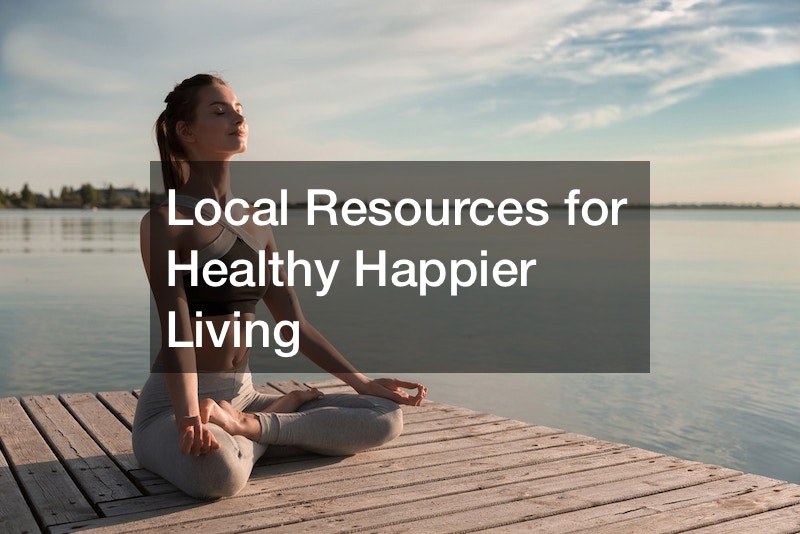
True wellness extends beyond sporadic treatments and fad diets; it encompasses a holistic approach to health that nurtures both body and mind. It involves regular visits to the dental office for preventive care, understanding medicaid benefits for comprehensive healthcare coverage, and embracing regenerative practices that promote long-term vitality.
In this article, we explore practical strategies for achieving a life centered on wellness. From cultivating mindful eating habits to incorporating regular physical activity into your routine, each step is designed to foster a sustainable lifestyle. We delve into the benefits of integrating regenerative wellness practices, emphasizing their role in rejuvenating the body naturally and holistically.
Navigating the maze of wellness options can be daunting, but armed with the right knowledge and approach, it becomes an empowering journey. We’ll debunk myths surrounding fat reduction shortcuts and highlight the importance of seeking holistic treatments that prioritize long-term health over quick fixes.
Join us as we embark on a journey to rediscover what it means to live well in today’s fast-paced world. Together, we’ll uncover practical tips and insights that promote lasting wellness and empower you to navigate life’s arcade with confidence and vitality.
What Does Wellness Mean?
Wellness encompasses more than just physical health—it also includes mental, emotional, and social well-being. It means striving for balance and harmony in all areas of life, including relationships, work, and leisure activities. Wellness is a holistic approach to health that focuses on prevention and self-care, rather than just treating illness.
When we prioritize wellness, we are better equipped to handle the challenges that life throws at us. It allows us to live our lives with purpose and intention, leading to greater fulfillment and happiness. Wellness is about more than just the absence of disease—it’s about thriving and living our best lives.
By taking a proactive approach to wellness, we can improve our overall quality of life and reduce the risk of chronic health conditions. It involves making conscious choices that support our physical, emotional, and mental well-being, such as eating a balanced diet, staying active, and managing stress effectively.
How Can Diet Impact Overall Wellness?
Diet plays a crucial role in overall wellness, as the foods we eat directly impact our physical health and energy levels. A balanced diet rich in fruits, vegetables, whole grains, and lean proteins provides essential nutrients that support optimal function of our bodies. On the other hand, a diet high in processed foods, sugar, and unhealthy fats can lead to weight gain, fatigue, and chronic health issues.
Eating a diet that is high in nutrients and low in processed foods can help promote weight loss and reduce the risk of conditions such as heart disease, diabetes, and obesity. By fueling our bodies with nutritious foods, we can improve our energy levels, mood, and overall well-being. Additionally, maintaining a healthy weight through diet can reduce the strain on our joints and organs, leading to improved overall health.
Incorporating a variety of nutrient-dense foods into our diets can also support our immune system, making us less susceptible to illness and disease. Foods rich in vitamins, minerals, and antioxidants can help boost our immunity and protect against infections. By prioritizing a healthy diet, we can enhance our overall wellness and quality of life.

What Are the Best Exercises for Wellness?
Regular exercise is essential for maintaining optimal wellness, as it has numerous physical and mental health benefits. Physical activity can help improve cardiovascular health, build strength and endurance, and boost mood and energy levels. Finding exercises that you enjoy and are sustainable in the long term is key to making exercise a regular part of your routine.
A mix of cardiovascular exercise, strength training, and flexibility exercises can help improve overall fitness and reduce the risk of chronic conditions such as heart disease, diabetes, and obesity. Incorporating a variety of activities, such as walking, cycling, yoga, and weightlifting, can keep workouts interesting and engaging. It’s important to listen to your body and choose exercises that are appropriate for your fitness level and goals.
Exercise can also be a great way to relieve stress and improve mental well-being. Physical activity releases endorphins, which are feel-good chemicals that can help reduce anxiety and depression. Whether you prefer high-intensity workouts or more gentle activities, finding ways to stay active can have a positive impact on your overall wellness.
How Can One Improve Their Mental Health?
Mental health is just as important as physical health when it comes to overall wellness. Taking care of your mental well-being involves managing stress, practicing self-care, and seeking support when needed. Mindfulness practices such as meditation, deep breathing, and journaling can help calm the mind and reduce feelings of anxiety and overwhelm.
Cultivating positive relationships and social connections can also support mental health and wellness. Spending time with loved ones, engaging in meaningful conversations, and participating in social activities can boost mood and reduce feelings of loneliness and isolation. Building a strong support system of friends, family, and professionals can provide a safety net during challenging times.
If you are struggling with mental health issues, it’s important to seek help from a mental health professional. Therapy, counseling, and medication can all be effective tools for managing conditions such as depression, anxiety, and trauma. Prioritizing your mental well-being is key to living a balanced and fulfilling life.
What Role Does Sleep Play in Wellness?
Sleep is essential for overall health and wellness, as it is a time for the body to rest, repair, and recharge. Getting an adequate amount of quality sleep is crucial for cognitive function, mood regulation, and physical health. Chronic sleep deprivation can lead to a range of health issues, including obesity, heart disease, and mental health disorders.
Creating a relaxing bedtime routine and practicing good sleep hygiene can help improve the quality and duration of your sleep. Limiting screen time before bed, creating a dark and quiet sleep environment, and establishing a consistent sleep schedule can all support healthy sleep patterns. Prioritizing sleep is a key component of a wellness-centered lifestyle.
If you struggle with sleep issues, it’s important to address underlying factors that may be contributing to your sleep disturbances. Stress, anxiety, and poor lifestyle habits can all impact sleep quality. Seeking professional help from a sleep specialist or therapist can provide personalized strategies for improving your sleep habits and overall wellness.

How Can Social Connections Influence Wellness?
Positive social connections are essential for overall wellness, as they can provide support, encouragement, and a sense of belonging. Building strong relationships with friends, family, and community members can help reduce feelings of loneliness and isolation. Engaging in social activities and connecting with others can boost mood and mental well-being.
Spending time with loved ones, engaging in meaningful conversations, and participating in group activities can help foster a sense of connection and community. Building a strong support network can provide emotional support during challenging times and enhance your overall quality of life. Social connections can also be a source of joy, laughter, and shared experiences.
If you struggle with social connections, it’s important to take steps to build and maintain relationships. Joining clubs, classes, or community groups can be a great way to meet like-minded individuals and expand your social circle. Prioritizing social connections can have a positive impact on your mental, emotional, and physical well-being.
How to Manage Work-Life Balance?
Managing work-life balance is essential for overall wellness, as it involves finding harmony between professional responsibilities and personal well-being. Setting boundaries, prioritizing self-care, and establishing routines can help maintain a healthy balance between work and leisure activities. Finding ways to recharge and relax outside of work hours is key to preventing burnout and maintaining overall wellness.
Practicing time management, delegating tasks, and setting realistic goals can help reduce stress and increase productivity in the workplace. Balancing career demands with personal interests and hobbies can provide a sense of fulfillment and satisfaction. Taking breaks, stepping away from screens, and engaging in activities that bring you joy can help recharge your energy and focus.
If you struggle with work-life balance, it’s important to assess your priorities and make adjustments to support your overall wellness. Seeking support from colleagues, managers, or professionals can help you navigate challenges and find sustainable solutions. Balancing work and personal life is a continuous process that requires self-awareness, communication, and resilience.

What are the Benefits of Practicing Gratitude?
Practicing gratitude is a powerful tool for enhancing overall wellness, as it can help shift your focus from what you lack to what you have. Expressing gratitude for the people, experiences, and blessings in your life can foster a sense of contentment and happiness. Gratitude can also improve mental well-being, reduce stress, and enhance relationships.
Keeping a gratitude journal, expressing thanks to others, and practicing mindfulness can help cultivate a grateful mindset. Recognizing and appreciating the positive aspects of your life can boost your mood and resilience during challenging times. Gratitude can also enhance your sense of purpose, meaning, and connection to others.
Incorporating gratitude practices into your daily routine can help you develop a more optimistic outlook on life and increase your overall well-being. Recognizing the abundance in your life, even during difficult times, can provide a sense of hope and resilience. Prioritizing gratitude is a simple yet powerful way to enhance your quality of life and living a wellness-centered lifestyle.
How Can Technology Be Used to Enhance Wellness?
Technology can be a valuable tool for enhancing overall wellness, as it provides access to resources, information, and support. Health and fitness apps, wearable devices, and online platforms can help you track your progress, set goals, and stay motivated. Virtual fitness classes, telemedicine services, and mindfulness apps can all support your wellness journey.
Utilizing technology to connect with others, access educational resources, and monitor your health can enhance your overall well-being. Online communities, social media groups, and virtual support networks can provide encouragement, inspiration, and accountability. Technology can also facilitate communication with healthcare providers, therapists, and wellness experts.
By embracing technology mindfully and purposefully, you can leverage its benefits to support your wellness goals. Setting boundaries, managing screen time, and using technology as a tool for self-care can help you stay balanced and focused. Finding ways to integrate technology into your wellness routine can help you optimize your health and happiness.

How to Develop a Personal Wellness Plan?
Developing a personalized wellness plan is key to living a life centered on well-being and self-care. Start by assessing your current habits, routines, and goals related to physical, mental, and emotional health. Identify areas where you can make positive changes and set realistic, achievable goals for improvement.
Create a wellness plan that includes specific strategies for diet, exercise, sleep, stress management, and self-care. Consider working with a healthcare provider, nutritionist, or wellness coach to create a plan tailored to your individual needs and preferences. Establishing a routine, tracking your progress, and adjusting your plan as needed can help you stay on track and achieve your wellness goals.
Remember that wellness is a journey, not a destination, and it’s important to be patient and kind to yourself along the way. Celebrate your successes, learn from setbacks, and stay committed to prioritizing your well-being. Your personal wellness plan should be flexible, sustainable, and focused on supporting your overall health and happiness.
Conclusion
In conclusion, living a life centered on wellness is not merely a goal but a continuous journey of self-care and mindful choices. It’s about embracing holistic practices that nurture both physical and mental well-being, from regular visits to the orthodontist for dental health to exploring sports recovery techniques that enhance overall fitness.
True wellness extends beyond occasional treatments; it involves cultivating habits that prioritize long-term health over temporary fixes. Whether through mindful eating choices at sushi restaurants or seeking treatment for addictions that hinder personal growth, every decision contributes to a healthier, more fulfilling life.
Moreover, the journey towards wellness is also about balance and self-awareness. It’s understanding that occasional indulgences are part of life’s enjoyment while maintaining moderation and making choices that support well-being. Integrating regenerative practices and embracing holistic treatments can further enhance vitality and resilience.
As we navigate the complexities of modern life, prioritizing wellness becomes an empowering choice. It’s about recognizing the interconnectedness of physical health, mental clarity, and emotional well-being. By incorporating these principles into daily life, we not only improve our own quality of life but also inspire those around us to embrace a lifestyle that values self-care and vitality.
Ultimately, living centered on wellness is a commitment to self-improvement and a testament to the transformative power of mindful living. It’s about fostering a harmonious relationship between mind, body, and spirit, ensuring that each day brings us closer to our fullest potential and a life well-lived.



